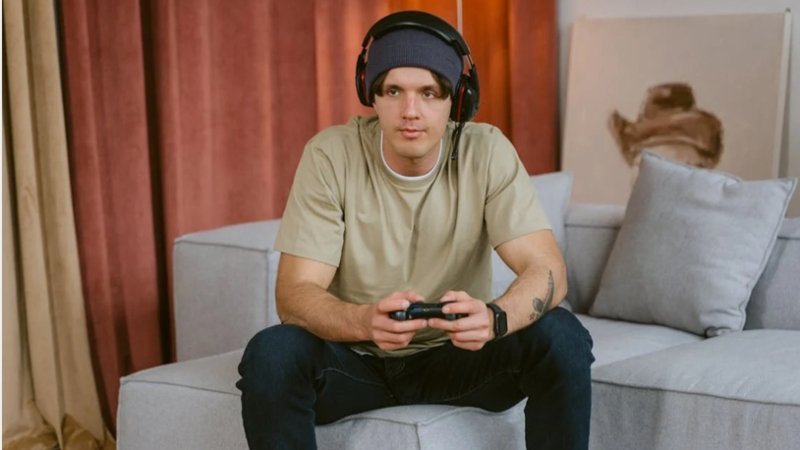In today’s digital world, where you can connect with friends across the globe in just seconds, online spaces have transformed how we interact with one another. Whether through social media, online gaming, or even chatting while playing a round of online blackjack, the internet offers us endless ways to engage and socialize.
However, while these platforms provide opportunities to connect, they also raise important questions about their effects on mental health. Let’s dive into the dynamic relationship between cyberspace, social interaction, and mental well-being.
The Power of Connection in Online Gaming
Online gaming has come a long way from the solo experiences of early video games. Today, millions of players worldwide connect through multiplayer platforms like Fortnite, League of Legends, or Call of Duty. Online games are no longer just about the game itself; they’re about forming communities, working together, and competing with others.
These virtual spaces provide a sense of belonging, especially for individuals who may struggle with social interactions in real life. Through guilds, clans, and teams, players build strong social bonds, often extending their friendships beyond the screen. For many, this form of social interaction is a positive experience, offering an outlet to escape stress or anxiety and participate in shared goals with others.
However, there are two sides to this coin. While online gaming offers many benefits, it can also lead to addictive behaviors and social isolation if not managed properly. Many players find themselves spending excessive hours in these digital spaces, sometimes at the expense of real-world relationships and responsibilities.
Social Media: Double-Edged Sword of Connection
Social media platforms like Facebook, Instagram, and TikTok have revolutionized how we communicate. From sharing photos to commenting on a friend’s post, social media enables instant interaction and keeps us connected. For many people, social media provides a sense of community, allowing them to stay in touch with friends and family or even make new friends across the world.
However, the constant comparison of one’s life to curated, often filtered, online personas can negatively impact mental health. Studies have shown that heavy social media use is linked to increased anxiety, depression, and feelings of loneliness. The “fear of missing out” (FOMO), fueled by constantly seeing others’ seemingly perfect lives, can contribute to feelings of inadequacy and stress.
Despite its downsides, social media, when used mindfully, can be a powerful tool for connection. Many people find support groups, share experiences, and engage in meaningful conversations that can have positive effects on their mental well-being. It all comes down to how you navigate the space and ensure you’re engaging with it healthily.
Online Communities and Mental Health Support
Online spaces have also become a valuable resource for mental health support. Forums, blogs, and even gaming communities provide safe environments where individuals can share their struggles and seek advice. For those who feel stigmatized or uncomfortable discussing their mental health in person, these digital communities offer a sense of anonymity that can encourage more open dialogue.
Mental health apps and virtual therapy platforms have also gained popularity in recent years, further highlighting how technology can support mental wellness. The ability to connect with a therapist or counselor online allows individuals to access help from the comfort of their homes. Additionally, these apps often provide resources like mindfulness exercises, guided meditations, and journaling prompts that can aid in stress reduction.
While the internet has become a double-edged sword for mental health, it undeniably offers valuable tools for those seeking connection and support.
The Impact of Cyberbullying and Toxicity
One of the darker aspects of social interaction in cyberspace is the rise of cyberbullying and online toxicity. Both social media and online gaming platforms have seen a surge in negative behaviors, from trolling and harassment to exclusion and public shaming. This toxicity can deeply affect an individual’s self-esteem, leading to increased stress, anxiety, and depression.
For many, constant exposure to negative interactions can make them feel vulnerable, alienated, and afraid to participate in online communities. Gaming, which is meant to be a fun and collaborative experience, can turn hostile, pushing individuals away from a hobby they once loved. Similarly, social media bullying can leave lasting emotional scars.
To mitigate this, online platforms have introduced features like content moderation, reporting systems, and mental health support initiatives. While these steps are helpful, it’s important to remember that users themselves play a key role in fostering positive and respectful online spaces. Taking time to disconnect and engage in face-to-face interactions, hobbies, or physical activities can improve your mental health and strengthen your offline relationships.
Finding Balance in Cyberspace
As much as the digital world offers avenues for social interaction and support, it’s crucial to strike a balance between online engagement and real-world connections. The key lies in mindful usage. Whether you’re playing online blackjack or scrolling through Instagram, being aware of how these activities make you feel can help you identify when it’s time to take a break.
Taking time to disconnect and engage in face-to-face interactions, hobbies, or physical activities can improve your mental health and strengthen your offline relationships. Ultimately, the internet can be a powerful tool for social interaction, but like anything else, it should be used in moderation.
Embracing the Good and Managing the Bad
Navigating the complexities of social interaction in cyberspace is about embracing its benefits while managing its potential pitfalls. Online gaming and social media can enhance your life and provide meaningful connections, but they should never become a substitute for real-world interactions. By staying mindful of your online behaviors, you can foster healthy digital and physical relationships.
Craving more? Dive into our next article and satisfy your appetite for knowledge in Kaz Magazine.
